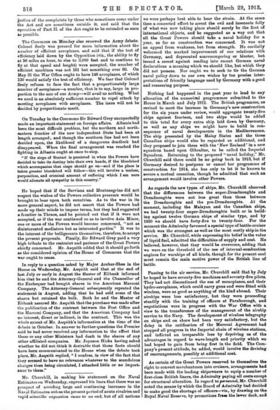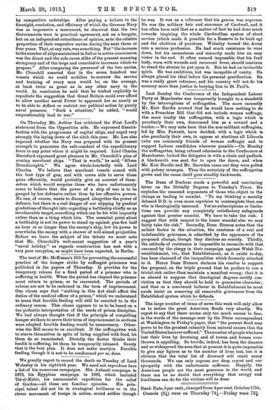As certain of the Great Powers reserved to themselves the
right to convert merchantmen into cruisers, arrangements had been made with the leading shipowners to equip a number of first-class British liners, the Admiralty paying all costs except for structural alteration. In regard to personnel, Mr. Churchill noted the means by which the Board of Admiralty had decided to make good the shortage of officers—viz., by drawing on the Royal Naval Reserve, by promotions front the lower deck, and
by competitive cadetships. After paying a tribute to the foresight, resolution, and efficiency of which the German Navy was so impressive a monument, he observed that the two Governments were in practical agreement, not on a bargain, but on an independent coincidence of opinion, as to the relative proportion of their respective navies during the next three or four years. That, at any rate, was something. But "the increase in the number of ships maintained in full or in active commission was the direct and the sole cause alike of the present manning stringency and of the large and cumulative increases which we propose." After comparing the personnel of the two navies, Mr. Churchill asserted that in the seven hundred war vessels which we could mobilize to-morrow the service and training of every man would be, on the average, at least twice as great as in any other navy in the world. In conclusion he said that he wished explicitly to repudiate the suggestion that Great Britain could ever afford to allow another naval Power to approach her so nearly as to be able to deflect or restrict our political action by purely naval pressure. "Such a situation," he added, "would unquestionably lead to war."











































 Previous page
Previous page